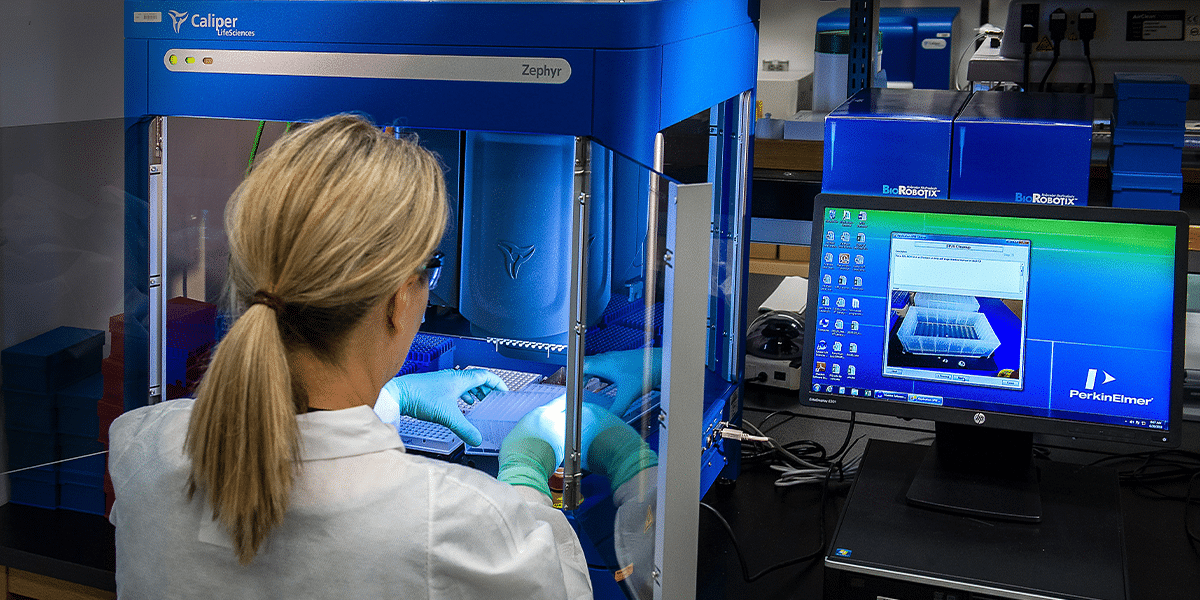Innovation is the lifeblood of progress, and nowhere is this more critical than in the field of healthcare. The constant evolution of technology, coupled with ever-changing patient needs, demands a proactive approach from entrepreneurs seeking to make a mark in this sector.
Entrepreneur and healthcare innovator Roger Farahmand explores the dynamic landscape of healthcare innovation, offering insights and strategies for aspiring entrepreneurs.
Entrepreneurs in healthcare face a unique set of challenges and opportunities. From navigating regulatory hurdles to harnessing the power of data analytics, the path to success is filled with complexities. With these challenges come unprecedented opportunities to revolutionize the way we approach healthcare delivery and patient care.
Through his unique insights, Roger Farahmand delves into key concepts of healthcare innovation, such as technological advancements, consumer-centric healthcare, and the role of collaboration in driving innovation.
Understanding Healthcare Trends
The healthcare industry is in a state of constant evolution, driven by technological advancements and shifting patient preferences. Three key trends are currently shaping the landscape: telemedicine, personalized medicine, and wearable technology.
Telemedicine, the remote diagnosis and treatment of patients through telecommunications technology, is revolutionizing healthcare accessibility. It presents entrepreneurs with opportunities to create innovative solutions that bridge gaps in healthcare delivery, particularly in underserved areas.
Personalized medicine, which tailors medical treatment to individual characteristics, is another trend gaining traction. This approach, enabled by advances in genomics and data analytics, offers entrepreneurs the chance to develop targeted therapies and interventions that can significantly improve patient outcomes.
Wearable technology, such as smartwatches and fitness trackers, is increasingly being used to monitor health metrics and provide real-time data to users and healthcare providers. This trend opens up avenues for entrepreneurs to create integrated healthcare solutions that empower individuals to take charge of their health.
“For entrepreneurs in healthcare, staying abreast of these trends is crucial,” says Roger Farahmand. “It not only enables them to identify emerging opportunities but also ensures that their innovations are aligned with the evolving needs of the industry and its stakeholders.”
Navigating Regulatory Challenges
The healthcare industry is highly regulated, with stringent requirements governing areas such as FDA approvals, data privacy, and insurance regulations. Entrepreneurs entering this space must navigate these regulatory hurdles effectively to ensure their innovations comply with legal and ethical standards.
FDA approvals are a crucial aspect of healthcare innovation, particularly for medical devices and pharmaceuticals.
Notes Farahmand, “Entrepreneurs need to understand the regulatory requirements and timelines involved to navigate this process successfully.”
Data privacy laws, such as the Health Insurance Portability and Accountability Act (HIPAA), impose strict requirements on the collection, use, and disclosure of patient information. Entrepreneurs must implement robust data protection measures to ensure compliance and build trust with consumers.
Insurance regulations also play a significant role in healthcare innovation, as they determine reimbursement rates and coverage for new products and services. Entrepreneurs should familiarize themselves with these regulations to develop sustainable business models.
In navigating these regulatory challenges, entrepreneurs must prioritize compliance and ethical considerations. Adhering to regulatory requirements and upholding ethical standards allows entrepreneurs to mitigate legal risks but also build credibility and trust within the healthcare industry.

Leveraging Technology for Impact
In the realm of healthcare innovation, technology stands as a pivotal force, driving transformative changes across various facets of the sector. The integration of cutting-edge technologies such as Artificial Intelligence (AI), blockchain, and the Internet of Things (IoT) has revolutionized conventional healthcare practices. AI algorithms facilitate efficient data analysis, enabling healthcare professionals to derive valuable insights for personalized patient care and treatment strategies. Blockchain technology ensures the integrity and security of sensitive medical data, fostering trust and transparency within healthcare systems. Additionally, IoT devices offer real-time monitoring and remote patient management, enhancing accessibility and quality of care.
Entrepreneurs venturing into the healthcare domain are advised to strategically leverage these technological advancements to maximize impact. Embracing AI-driven solutions can streamline operational processes, optimize resource utilization, and enhance clinical outcomes.
Incorporating blockchain technology ensures data interoperability and privacy protection, which is essential for maintaining compliance with regulatory standards. Furthermore, integrating IoT devices into healthcare ventures enables the delivery of proactive and personalized patient-centric services, thereby fostering improved health outcomes and patient satisfaction.
The judicious utilization of technology holds immense potential for driving innovation and catalyzing positive transformations within the healthcare landscape, empowering entrepreneurs to revolutionize healthcare delivery and patient care paradigms.
Building Sustainable Business Models
Developing sustainable business models within the healthcare sector necessitates a comprehensive understanding of various factors that shape the industry’s dynamics. Entrepreneurs embarking on ventures in this domain must carefully consider elements such as reimbursement models, scalability, and strategic partnerships.
Effective management of reimbursement models ensures adequate financial support for healthcare services while aligning with regulatory frameworks and payer preferences. Scalability is paramount, enabling businesses to adapt and expand their operations in response to evolving market demands and opportunities.
“Strategic partnerships with healthcare providers, technology firms, and investors can facilitate access to resources, expertise, and market networks, fostering growth and innovation,” says Farahmand.
Entrepreneurs are advised to adopt resilient strategies that navigate the complexities of the healthcare landscape. This entails agility in responding to regulatory changes, technological advancements, and shifts in consumer preferences. A keen focus on addressing societal needs, such as healthcare disparities and accessibility, is vital for building sustainable businesses with lasting social impact.
Balancing societal goals with financial viability ensures that healthcare ventures not only thrive but also contribute meaningfully to improving healthcare outcomes and promoting equitable access to services. By integrating these principles into their business models, entrepreneurs can establish resilient enterprises poised for long-term success amidst the dynamic healthcare environment.
Published by: Martin De Juan








